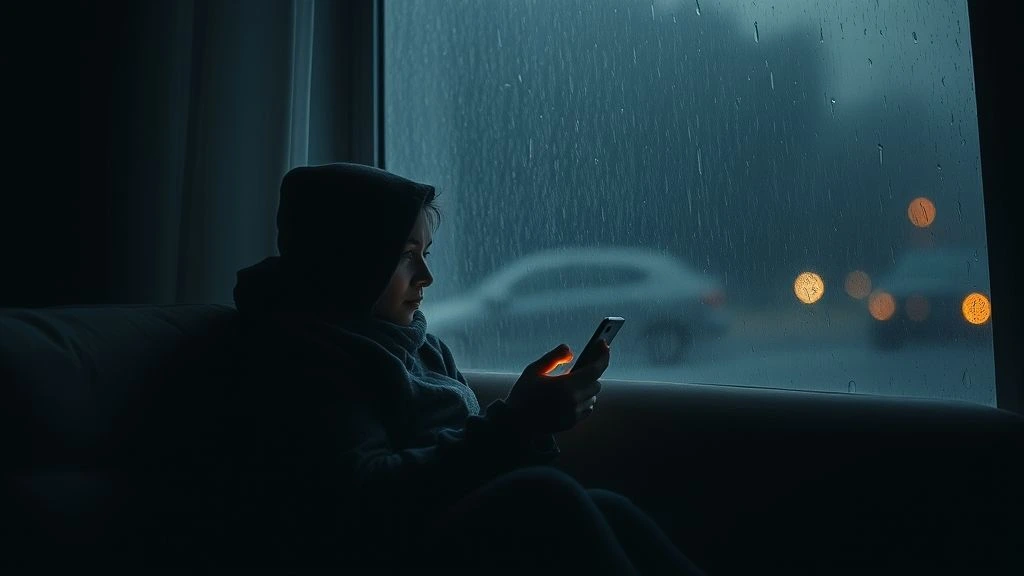
Trust Your Partner: Stop Obsessing & Heal Anxiety
That Little Voice in Your Head You love them. You want to trust Your Partner. But every time they’re a few minutes late or don’t text back right away, your mind spins stories you don’t want to believe. Your heart says, “They care.” But your brain whispers, “What if they don’t?” If you’re reading this, you’re not alone. Trusting someone, especially after pain or betrayal in the past, can feel like trying to walk through fire without getting burned.
Let’s be real: rebuilding trust (or even building it for the first time) is messy, emotional, and sometimes deeply unfair. But it’s possible — and more than that, it’s worth it. This blog isn’t about pretending it’s easy. It’s about helping you walk through the storm — not around it.
Why to Trust Your Partner Feels So Hard (And That’s Okay)
Before we dive into the how, let’s talk about the why. You might’ve grown up watching people lie or leave. Maybe someone once told you they’d always be there — and then vanished when you needed them most. Or maybe you were in a relationship where trust was broken so often, it became normal to always expect the worst. Your brain isn’t broken. It’s trying to protect you. But sometimes that protection turns into a prison.
And the hardest part? You could be with a partner who’s doing everything right — showing up, being consistent — and still feel anxious, guarded, even suspicious. That doesn’t make you bad. It makes you human.
Emotional Security Exercise #1: “What’s My Fear Really Saying?”
Here’s a raw truth: most trust issues aren’t about your partner — they’re about your past. Next time you feel the urge to panic (“Why are they online but not replying?”), pause and ask yourself:
🧠 “What am I really afraid of here?” Write it down. No filter. Be brutally honest.
It might sound like:
- “I’m scared they’ll get bored and find someone better.”
- “I feel invisible when they don’t respond right away.”
- “I don’t feel good enough unless someone’s giving me attention.”
Now reframe it:
- “This fear comes from a time I felt abandoned. But I’m not there anymore.”
- “My value doesn’t shrink based on someone else’s reply speed.”
This small exercise doesn’t fix everything. But it interrupts the spiral — and that’s huge.

The Negative Loop vs. The Reality Check
Let’s say your partner hasn’t called you back in hours. Your brain starts racing:
“They’re losing interest.”
“They’re hiding something.”
“They don’t care.”
STOP.
Take a breath. Ask yourself:
- Have they done something to lose your trust recently?
- Is there actual proof of wrongdoing?
- Could they just be… busy?
This isn’t about gaslighting yourself. It’s about stepping back from panic to look at the bigger picture. Sometimes we confuse patterns of the past with signs in the present. If they’re giving you no reason to doubt them — remind yourself: not every silence is betrayal.
Communication Script: Saying What You Mean Without Pushing Them Away
One of the hardest parts of trust issues is the fear of sounding “needy.” But vulnerability, when done gently, brings people closer. Here’s a script you can use: “I know this might sound small, but when I don’t hear from you, my mind starts telling me scary stories. I’m not blaming you — I just wanted to be honest, because I care about us.”
This does three powerful things:
- It takes ownership of your feelings.
- It avoids blame.
- It invites connection, not conflict.
- Learning to Trust Your Partner Starts with You
Most people want to be loved well — they just don’t always know how. Help them learn you your feelings habit and how to love you better.
Motivational Note: You Deserve to Feel Safe in Love
Here’s what no one tells you: Trust isn’t about never feeling fear. It’s about choosing to stay open anyway. There will be days when your brain screams red flags that don’t exist. There will be moments where you’ll want to pull away before you get hurt. But every time you choose softness over sabotage — you win.
You are not too broken.
You are not too much.
You are learning to love with both hands open.
And that? That’s courage.

When Love Feels Like a Battle Between Hope and Fear
It’s late. Your phone lights up — but it’s not them. Your heart drops. Your stomach twists. You try to act normal, try not to care too much. But deep down, your chest aches in that weird, quiet way… like you’re bracing for an emotional punch that might not even come.
And then the thoughts rush in, loud and fast:
- “Am I being too much again?”
- “Are they pulling away?”
- “Maybe I shouldn’t have texted first.”
You hate this. You don’t want to be “that person.” But the fear is real. It lives in your ribs. It’s not dramatic. It’s just… heavy. And let’s be honest — sometimes trusting someone feels way scarier than being alone.
Emotional Security Exercise #2: “Feel the Fear — and Stay Anyway”
This one’s uncomfortable, but real growth often is. The next time that familiar wave of panic hits, don’t run from it. Sit with it. Literally — sit down, place a hand on your chest, and breathe. Tell yourself out loud: “I feel scared right now. And that’s okay. But fear doesn’t get to drive this car.” Because here’s the raw truth: trust isn’t the absence of fear. It’s choosing not to let fear lead your life.
Let the fear exist… and still send the message. Still stay present. Still love. Even if your voice shakes.
That’s the kind of bravery no one claps for — but it’s the kind that changes everything.

Signs You Can Trust Them (Even If It Doesn’t Feel Like It Yet)
Sometimes your partner is doing everything right — and you still feel unsafe. That doesn’t make you crazy. It makes you someone who’s been through stuff.
But if you’re with someone who:
- Replies with care, even when you’re anxious
- Keeps their word, even with small things
- Listens when you speak, without rolling their eyes or making you feel dramatic
- Doesn’t punish you for being emotional
…then maybe it’s time to gently let your walls down. Not all at once. But piece by piece. Let them show you: love can be soft. It doesn’t always have to feel like walking on glass. You don’t have to pretend you’re “over it” to trust your partner. You just have to be honest.
Communication Script: The “Soft Confession”
Try this when trust gets hard but you don’t want to self-sabotage: “I get scared sometimes, and I know that fear isn’t always fair to you. But I’m trying. Because you matter to me, and I don’t want to shut down or push you away.” It’s not perfect. It’s not a speech. It’s just a soft confession from your messy, honest heart. And sometimes, that’s all it takes to open a whole new kind of closeness.
Goosebump Truth: The People Who Stay
The right people won’t shame you for your wounds. They’ll sit with you while you untangle them.
They won’t rush your healing. They won’t call you crazy for needing reassurance. They’ll say things like:
- “It’s okay to feel that way.”
- “You don’t have to hide your fears from me.”
- “We’ll figure this out together.”
And you’ll cry the kind of tears that don’t burn — they relieve. Because love, real love, isn’t just butterflies.
It’s feeling safe enough to show the parts of yourself that feel unlovable — and watching someone love you there, anyway.
Emotional Security Exercise #3: “The Anchor Letter”
Write your partner a letter. Not one you send (yet). Just for you. In it, answer these:
- What do I appreciate about them?
- What are some ways they do make me feel safe?
- What are the fears I have, and where do they come from?
- If I could trust them with my whole heart, what would I tell them?
Then read it back to yourself — slowly. Goosebumps will rise. Maybe even tears. That’s okay. This is how you rewire your brain to believe that love can feel safe — one word, one moment, one risk at a time.

Final Reminder: You’re Allowed to Heal. You’re Allowed to Trust Your Partner Again.
There’s no timeline for trusting someone. Some days you’ll feel wide open and glowing. Other days, you’ll want to run. But healing doesn’t mean never doubting. It means learning to talk to your fear instead of obeying it. And even if you’ve been hurt — especially if you’ve been hurt — please know this: You’re just a soul learning how to trust your partner again — one shaky, beautiful step at a time.
You are not too broken to be trusted.
You are not too complicated to be loved.
You are not “too much” for the right person.
You’re just a soul learning how to trust again — one shaky, beautiful step at a time.
Disclaimer: This post is for informational and emotional support purposes only. Every relationship is unique, and this is not professional legal, medical, or mental health advice. Read our full disclaimer.
Affiliate Disclosure: Some links in this post may be affiliate links. If you make a purchase through them, I may earn a small commission at no extra cost to you. Learn more here.